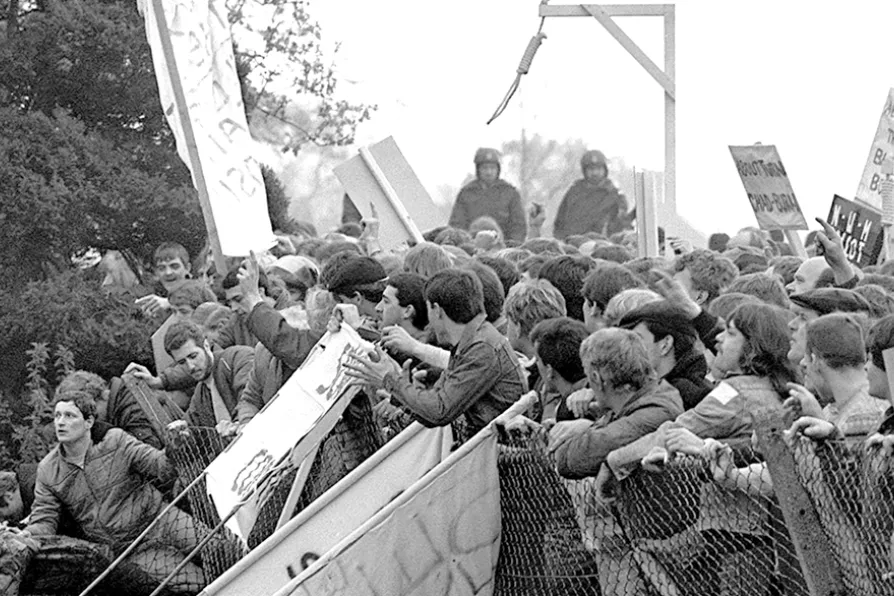Rubio's disturbing speech in Munich exposed the West's brutal plans — more imperialism, more colonialism, more white supremacy, says ROGER McKENZIE

 SCAB RUSH: Nottinghamshire miners at a ‘Right to Work’ rally outside the Nottinghamshire NUM headquarters, May 1984
SCAB RUSH: Nottinghamshire miners at a ‘Right to Work’ rally outside the Nottinghamshire NUM headquarters, May 1984
OVER the next few weeks I helped out with the campaign, which included a number of meetings across the Notts coalfield. I recall one held in the Hucknall Sports Centre, with Ann Lilburn, then leader of the national Women Against Pit Closures movement, in the chair. Barry Johnson, vice-chair of the regional TUC, spoke on its behalf in his home town, with Arthur Scargill speaking for the NUM.
I organised the main rally of our unity campaign at Mansfield Leisure Centre one Saturday afternoon. Arriving there in good time, I found our national office receptionist Marilyn had turned up, but as she had a disability she could not climb the steps leading to the seats.
When I asked one of the strongest-looking stewards if he could help her he assessed the seating arrangement, looked carefully at Marilyn, then picked her up gently and simply carried her to one of the highest seats in the hall, giving her a brilliant view of the stage. She was delighted. Once the meeting began I thought everything was going well until I was approached by a plain-clothes police officer, probably from Special Branch, who looked very serious.













